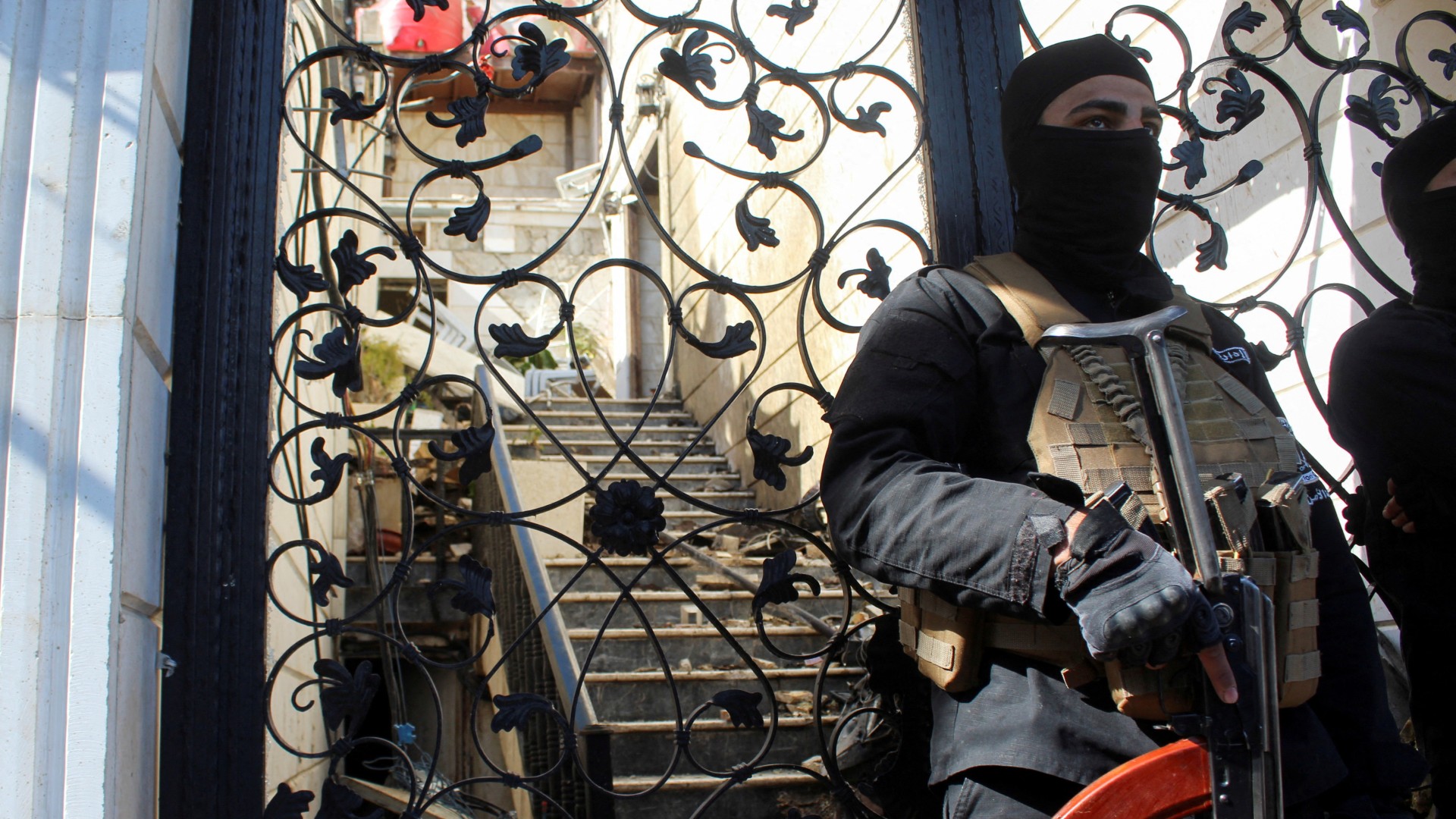US lobbied Turkey and Israel to hold military deconfliction talks on Syria

The Trump administration has lobbied Turkey and Israel to establish a deconfliction mechanism in Syria to prevent potential accidents, a US official and a regional source told Middle East Eye.
Tensions between the two countries have escalated since the fall of Bashar al-Assad’s government in Syria in December.
Israeli Prime Minister Benjamin Netanyahu and other officials have repeatedly voiced concerns over the permanent Turkish military presence beyond northern Syria, calling it a red line - particularly if it grants Ankara control over parts of Syrian airspace.
Earlier this month, Israel carried out several strikes in Syria, targeting military installations such as the Hama airbase and Tiyas airbase (also known as T4), where Turkey had been planning to deploy.
These strikes occurred just as Ankara was preparing to send a technical team to inspect T4 and conduct a preliminary assessment for its reconstruction.
New MEE newsletter: Jerusalem Dispatch
Sign up to get the latest insights and analysis on Israel-Palestine, alongside Turkey Unpacked and other MEE newsletters
Following the air strikes, sources from Turkey’s defence ministry confirmed that both countries held technical-level deconfliction talks in Baku, Azerbaijan last week.
Official sources told MEE that the meeting came after Washington encouraged both sides to engage in dialogue to prevent potential incidents.
A US official briefed on the matter said Secretary of State Marco Rubio emphasised the importance of de-escalating tensions with Israel and increasing dialogue during his meeting with Turkish Foreign Minister Hakan Fidan on 3 April in Washington.
The official added that Rubio reiterated the importance of the ongoing deconfliction talks in a follow-up phone call with Fidan on Monday.
A regional source noted that Washington is particularly concerned that Turkish and Israeli jets are now operating in dangerously close proximity, increasing the risk of unintended clashes.
'Not a big deal'
However, a Turkish official downplayed the role of US diplomacy, saying Turkey and Israel have had deconfliction mechanisms in place for some time.
The official noted that Turkey has maintained similar channels with Russia, Iran and the US in Syria for years, and adding one with Israel is “not a big deal”.
“Turkey and Israel previously were in touch during Ankara’s evacuation of its citizens from Lebanon last year,” a separate source familiar with the matter told MEE. “The two countries also used US Central Command as a channel for deconfliction in the past.”
This new mechanism, the source added, would provide 24-hour access for both parties, enhancing real-time coordination.
Another source indicated that further talks between Turkey and Israel on the matter are likely, and that a formal agreement isn’t necessary - an informal, verbal understanding would suffice.
An Israeli official, speaking on condition of anonymity, said Ankara has expressed hesitation about the deconfliction mechanism since December.
According to Turkish officials, Israel’s real aim isn’t just to avoid accidents but to create a sphere of influence in Syria, excluding the forces of Damascus’ new government and allowing Israel to act freely.
Turkish officials argue such demands would only destabilise the Syrian government, which urgently needs funding, international recognition and comprehensive state-building efforts, including infrastructure development, after a 14-year civil war.
Despite potential US mediation, Ankara insiders believe Turkey will not abandon its plans to establish military bases in Syria. These bases are intended to combat the Islamic State (IS) and fill the vacuum left by Russia and Israel’s shifting roles.
Over the weekend, Turkish Deputy Foreign Minister Nuh Yilmaz revealed at the Antalya Diplomacy Forum that Turkey has formed a regional coalition with Syria, Iraq, Lebanon and Jordan to coordinate military operations against IS.
He said the coalition would establish a headquarters in Damascus and launch operations once the Syrian government officially requests assistance.
However, a formal bilateral defence pact between Damascus and Ankara has yet to be signed, which would enable Turkey to increase its military aid and training for the newly formed Syrian military.
middleeasteye.net